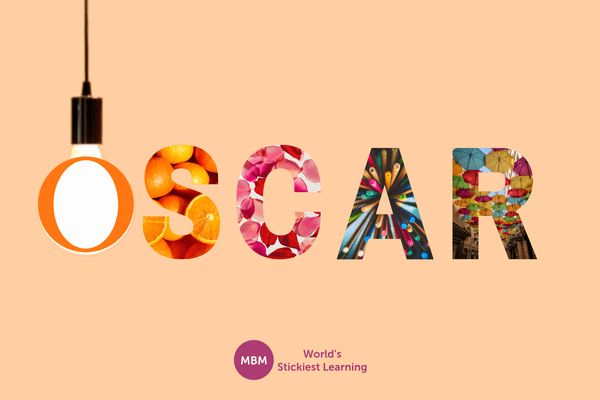What Do Helen Keller and Alexander the Great Have in Common?
Both Had Undergone Mentoring.
As a young child, Keller learned to “read” despite being deaf and blind through Anne Sullivan, who herself also had vision problems. One of the world’s greatest philosophers, Aristotle, was the mentor of Alexander. Experts believe that his ideas about life and teachings in biology inspired him to build the great Greek empire.
But they are not the only people in history to have mentors—we all do. Every day, we come across a life coach, career mentor, consultant, teacher, cheerleader, a manager, a CEO—and a whole lot more.
Regardless of the titles they use, the bottom line is the same: mentoring goes beyond establishing a relationship with a mentee. It’s about building another individual to be a better person so they too, in the future, can also become a good mentor.
What is Mentoring?
To define mentorship is to look at its specific characteristics:
- It is a relationship, which can be unidirectional (which means only the mentee learns) or collaborative, where both parties, mentor and mentee, learn from one another.
- It’s influencing and guiding a mentee in the hopes they succeed in different aspects of their lives, whether it’s for their career or personal.
- A great mentor passes on both hard and soft skills they’ve learned over the years to the mentee.
- Contrary to popular belief, mentors are not always older or more experienced than their mentees. Nevertheless, they are considered experts in a specific field.
- As a relationship, mentoring can last for a long time, some even a lifetime.
What Is the Role of a Mentor?
In a 2019 article, F. John Reh defined what it’s not all about, and compared mentoring vs. coaching. For him, the two are completely different.
According to Reh, the primary role of a mentor is to provide wisdom, resources, and support the mentee. However, unlike a coach, they don’t resolve the problems of their protégé.
A coach, who can be a life or a career coach, aims to correct behaviors, mindsets, and beliefs that may be self-limiting or harmful. These are barriers that may have been preventing an individual from reaching their goals or attaining their maximum potential.
A mentor doesn’t provide specific instructions for the mentee or even enumerates the ideal goals they should set for themselves. Using their vast experience in life or career, they clear the path to help the person decide more wisely.
Reh also stressed that mentoring doesn’t revolve around counseling – that is, the experienced teacher doesn’t function as the student’s therapist.
Note, though, there are many ways to interpret the mentor-mentee relationship. Because of the broadness of the definition, roles and attributes can overlap. For example, a life coach can also act as a mentor to a certain extent.
At the end of the day, mentorship for success means someone will impart knowledge and guidance while the other will learn and benefit from it.
Sticky Learning ® is 7 times more effective than 1-day training courses. Plus, you will get a Chain of Evidence proving your Return on Investment. Discover soft skills training that changes behaviours long term.

Types of Mentoring
Mentorship programs come in many forms:

1. One-on-One
This is the most common type. It often involves mentorship matching. A person may check out a career mentor website and look for someone whose expertise and experience are something the individual desires or hope to learn.
In this setup, a mentor may deal with several mentees but never as a group. The manner of mentoring can also be more customized, according to the objectives of the mentee or both the mentor and the mentee.
The program is often structured, which means both parties know what to expect in the process and the possible outcomes. It also lasts only for a specific period.
2. Group
As its name suggests, a mentor handles different kinds of mentees who participate in discussions or activities together. Often, these individuals share a common goal even if they may come from various industries or walks of life.
Take, for example, group mentoring in the workplace. The CEO or career coach may launch personal development and stress management programs applicable to everyone.
In this arrangement, mentors often have more control not only of their activities but also the pace and the level of engagement, the direction of the mentorship program, and the progress.
This doesn’t mean that the mentee can no longer approach the mentor. The latter may provide a short one-on-one time, but the majority of the sessions are in a group setting.
3. Distance and Virtual Mentoring
This can be one-on-one or group but done online or virtually. This allows the former to assist proteges who are in other locations or who cannot attend face-to-face sessions for whatever reason. Take, for example, the COVID-19 pandemic.
Working with a mentor online rarely diminishes the quality of guidance or teaching. The best mentor can always adapt their strategies, techniques, or materials according to the mode of instruction or the media available.
However, for this to work, both parties may need to have a stable Internet connection, an established virtual app like Zoom or Skype, and a desire to learn. This is because the level of engagement can be different in the virtual world.
4. Reverse Mentoring Program
How do you reverse mentoring? In a typical mentorship program, the mentor teaches while the mentee listens. However, sometimes the teacher can also benefit from the student, so both can profit from the partnership or relationship.
Some types of mentoring in the workplace follow this setup. A senior manager may share inputs, guide, or train the new employee. However, if the latter is knowledgeable in IT and the senior manager is not, then the new worker can become a techie mentor.
5. Project Mentoring
A project mentor guides a team until the project or task is complete. Once it is over, the relationship also ends.
6. Informal and Formal
All the relationships above can be either formal or informal. A professional mentor may ask for payment or fee, and provide a limited period of teaching. The mentor can also develop a structured mentoring process.
An informal one is often casual and rarely has any specific goal or outcome. The mentor may share whatever he has with the mentee with no strings attached. And since it doesn’t have a timeline, it can last for a long time.
Benefits
Why is mentorship so important? The great benefits make it worth the time and effort:
1. It Can Improve Work Performance

Mentoring in the workplace can help boost the confidence of an employee regardless of their position or level of expertise at the time of the program.
A human capital research has shown that those with a mentor obtained higher compensation and found more opportunities for growth, promotion, and learning. They also expressed greater satisfaction in their jobs and career trajectories.
In another study, over 90% of employees with mentors find happiness in their work. However, that percentage drops by almost 50% among those who had no kind of guidance from an expert or an experienced person in the organization.
Mentoring can help curb the impostor phenomenon, where an individual doubt their knowledge, skill, or expertise. They often think they don’t deserve the accomplishments since others may be better than them and are often frightened of being exposed as “frauds.”
Mentoring provides not only these people the confidence but also reduces the impostor feeling by getting recognition from a higher person.
2. All Parties Can Enjoy the Benefits
It’s not only the mentees who reap the rewards. So too are the mentors and even the organization.
According to Forbes, mentors are over five times more likely to receive a promotion. This is because mentorship programs can help harness their existing skills while strengthening or building their leadership qualities. They can prove themselves to be valuable assets to the company.
Meanwhile, when both the mentor and mentee are happy in their jobs, they are less likely to leave. It then allows the organization to retain top talent and reduce its attrition rate.
A high turnover is costly for any enterprise. In a 2017 research by the Employee Benefit News, the cost can be as much as 33% of the employee’s yearly salary or around $15,000 per person. Much of it goes toward the hiring process. Onboarding and training new hires also mean additional expenses.
Furthermore, statistics revealed that over 60% of businesses saw their productivity rates increase when they implemented a mentorship program. Additionally, over half of the respondents said that mentoring had a positive impact on their revenues and profits.
3. It Can Promote Diversity in the Workplace
One of the surprising advantages of having a mentor in the workplace is better diversity. Why is diversity essential in an organization?
Diversity can increase productivity and collaboration, as people from various cultures or personal backgrounds can share unique and innovative ideas. Moreover, their local market knowledge can help companies find new niches or underserved markets. As a result, businesses can be more competitive in their industry.
Also, by focusing on diversity, organizations can keep the best talents. In a Glassdoor survey, over 60% of job seekers said that a diverse culture is important to them and, thus, may help them decide where to work.
Organizations with programs can increase their minority representation at the management level to 24%. The retention and promotion rates for these groups soared from 15% to almost 40% compared to non-mentored workers.
4. It Encourages the Mentee to Pass it Forward
The quality of the mentorship program may eventually inspire the mentee to become a mentor themselves. For one, they already have the soft and hard skills that will help them feel more confident in their ability to teach or share their knowledge.
Second, being a mentor can be a form of self-actualization. According to Maslow’s hierarchy of needs, self-actualization is the highest desire of any individual, not just an employee, since it gives them a sense of purpose or meaning.
5. It Works in Any Age
Anyone can benefit from any form of mentoring, even the young ones. About a third of the youth will grow up without a mentor. However, those who find a personal mentor are 55% less likely to skip school than their peers. Over 75% may engage in volunteering activities, while 90% will also provide mentorship. Later in life, a whopping 130% of these individuals will become leaders.
What Makes a Mentorship Successful?
While mentoring can happen at any time and involve different people, not all programs will succeed. But what does it take to make it work?

1. A Structured Mentoring Process May Be Better Than an Informal One
A successful mentoring process often features at least four phases or stages:
- Finding a mentor.
- Discussing the details of the mentorship program, such as the time, expectations and outcomes, activities, level of participation desired, and other participants, if any.
- Setting the goals of the mentee and then tracking their progress based on the inputs during the mentorship.
- Closing the program through feedback and evaluation.
This process works because:
- Both the mentor and mentee work toward specific goals,
- The mentor can customize their approach and knowledge to share based on the needs of the mentee, and
- Expectations are clear.
2. Mentorship Succeeds When the Mentor Has the Right Set of Skills
Hard skills are essential when the mentee’s desire is to learn the technicalities of the job, but soft skills are just as vital if not even more important than the hard ones. But what are these mentorship skills?
- Great lister. They can listen to the mentee and acknowledge their ideas or concerns.
- Open to sharing their knowledge with others. They have the openness or willingness to share their knowledge or wisdom with no hidden agenda (e.g., they don’t feel threatened by the fact that the mentee may exceed them in the future).
- Respectful and patient. Successful programs have mentors that are respectful and patient toward their mentees. They know what it feels like to be in their shoes.
- Positive role models. Good mentors serve as positive role models not only for the mentees but also for the organization. They lead excellent professional and personal lives.
- Value learning and growth. They also value learning and growth, which helps them provide up-to-date information to their peers and protégés.
- Gives guidance and open to criticism. A true mentor provides guidance and constructive feedback and is open to accept the same from their mentee, management, or colleagues.
3. Both Parties Stick to the Best Practices
What are the best practices in mentoring? It can vary between mentors and mentees.
For the mentees, it involves:
- Creating achievable, measurable, and sensible goals with the mentor
- Practising honesty and authenticity
- Exercising collaboration
- Being open to communication
- Applying the lessons received from the mentor
- Participating in discussions and activities
- Showing appreciation to the mentor
To effectively mentor someone, the best practices include:
- Helping the mentees set goals for themselves while respecting the pathway they want to take in the end.
- Creating a mentorship program that addresses the needs of the mentee.
- Being open to collaboration, new ideas, and even constructive feedback.
- Identifying resources that the mentee may need to increase the odds of having a successful program.
- Being honest and authentic.
- Identifying metrics to determine the progress and level of success.
- Showing appreciation to the mentee.
Mentoring makes better people – productive, efficient, and confident individuals who, with increased knowledge and expertise, can contribute further to their organization, community, and even family. That is why it always deserves a place in society.




